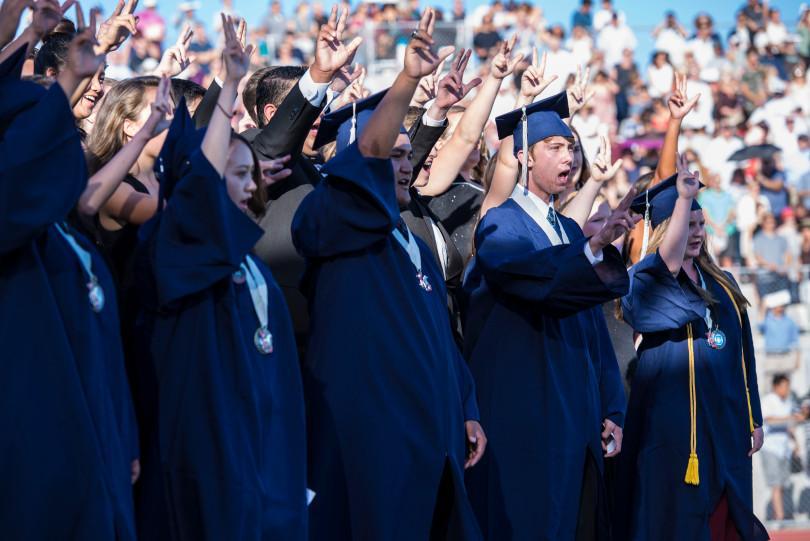Highly Unprepared
An image of the 2017 YLHS graduation. These students are bidding farewell to their high school years and looking towards their college experience.
March 12, 2019
This past year, I watched my sister drop out of college. She had the highest available scholarship, she was part of the honors program, she was filled with excitement upon her acceptance. I couldn’t understand why she had done it. I knew how hard she had worked throughout high school. I knew she maintained good grades and scored highly on the SAT. She was smart, a lot smarter than me. So why in the world would she give up something she had worked so hard for?
For the longest time I was stumped. She wasn’t failing any classes, so I knew she wasn’t flunking out. It made no sense to me.
But I have begun to understand why she left school.
In our culture, we have been taught to use our grades and test scores as a way of distinguishing whether or not we are college bound. Decent grades automatically equates to university ready. With relentless pressure from our parents and endless encouragement from our school, we quickly decide that attending a 4-year college immediately out of high school is the best option for us. We only think about the acceptance letters, not life after that.
As stated by Victor Schwartz, M.D., a clinical associate professor of psychiatry at the NYU School of Medicine, “We put so much intensity, energy and focus into ‘prepping’ for college by preparing for SATs, taking AP classes and visiting schools, but many of us miss a central part of the preparation project — namely, doing what you can to try to prepare developmentally for life away at college” (NBC News). Similar to my sister, many are ready for the rigorous academics but unprepared for the enormous life changes associated with attending university.
When we go to college, we move out of the bedrooms that we slept in for the last 18 years. We say goodbye to our friends that we’ve known since diapers. We relinquish our family dinners and after-school conversations with our moms. We’re leaving behind our routines, our adolescent lives.
So many don’t acknowledge how big these changes are. Yes, it is exciting for all the new opportunities and the freedoms of adulthood that college offers. But it’s also painful to take a step back and bid farewell to all of the things we’re leaving behind.
When one arrives at university with high expectations and naivety, it’s a culture shock. Students aren’t prepared for the loneliness and confusion associated with the first year at college. According to the Jordan Porco Foundation, around 60% of freshman college students wished that they had something that prepared them emotionally (NBC News). Its an environment of endless unknowns that students are far from ready for.
As many seniors await their college acceptance letters and juniors begin to consider where they wish to attend, they admit how unprepared they are. As Jayden Hawley (11) takes her college tours and prepares for her ACT, she can attest that she “does not feel ready for the changes of going away to school.”
High school prepares us academically. But what prepares us emotionally? How can we be expected to thrive in the college classroom when we’re failing in our day to day life?
Students need help. Rather than focusing solely on the grades and test scores, parents and schools should begin preparing their teens emotionally. If my sister, and many other students, had received that same support, the transition may have been a lot easier and more enjoyable.







































